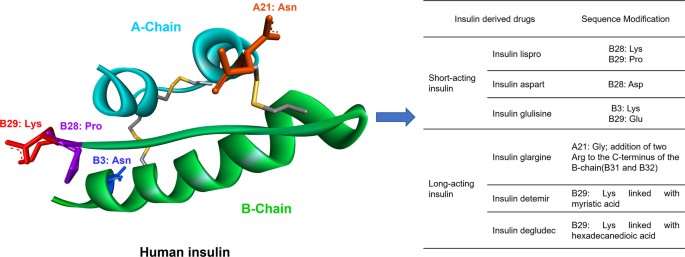In recent years, peptide therapy has emerged as a promising treatment option for various health concerns, ranging from age-related conditions to metabolic disorders. Peptides are short chains of amino acids that play crucial roles in biological functions, and their therapeutic potential has garnered significant attention in the medical community. This article will explore the different peptide treatment options available, how they work, and where you might find them near you. With a focus on both the benefits and limitations, we aim to provide a comprehensive overview to help you understand whether peptide therapy is suitable for your needs.
Understanding Peptides: The Basics
Peptides are essentially the building blocks of proteins and are involved in numerous physiological processes in the body. They can act as hormones, neurotransmitters, or signaling molecules, influencing everything from metabolism to immune response. The therapeutic application of peptides includes their use as treatments for diabetes, obesity, autoimmune diseases, and muscle wasting, among others. According to recent studies, the global peptide therapeutics market is projected to grow significantly, reaching an estimated value of $49 billion by 2027. This surge is attributed to the increasing prevalence of chronic diseases and the growing demand for targeted therapies.
Types of Peptide Treatments Available
The landscape of peptide therapy is diverse, with numerous types of treatments available. Some of the most commonly used peptides include growth hormone-releasing hormones (GHRH), insulin-like growth factor (IGF-1), and various melanocyte-stimulating hormones (MSH). Each type of peptide has specific applications. For example, GHRH is often utilized to enhance growth hormone levels, which can aid in muscle growth and fat loss. On the other hand, IGF-1 is frequently prescribed for conditions related to muscle wasting and age-related sarcopenia. Melanotan peptides are known for their skin tanning effects and are used for cosmetic purposes.
Peptide Therapy Clinics: Where to Find Them
As peptide therapy gains popularity, many clinics specializing in this treatment have emerged across the United States and globally. These clinics often offer a range of peptide-based therapies tailored to individual needs. To find a reputable peptide clinic near you, it is essential to conduct thorough research. Look for clinics that have licensed medical professionals overseeing the treatments, as well as positive patient reviews. Additionally, local health and wellness centers may also offer peptide therapy as part of their services.
Cost of Peptide Treatments
The cost of peptide therapy can vary widely depending on the type of peptide, the treatment protocol, and the clinic’s location. On average, patients can expect to pay anywhere from $200 to $1,000 per month for treatment. Some peptides, like BPC-157 and TB-500, might be less expensive, while others, such as GHRP-2 or CJC-1295, may come at a premium. It’s important to inquire about the pricing structure and whether the clinic offers payment plans or financing options. Insurance coverage for peptide therapies is still limited, so understanding the financial aspect beforehand is crucial.
Benefits of Peptide Therapy
Peptide therapy offers a variety of potential benefits. One of the most appealing aspects is the targeted nature of peptide treatments. Unlike traditional medications that may have broad effects and numerous side effects, peptides are designed to interact with specific receptors or pathways in the body. This precision can lead to improved outcomes and fewer adverse reactions. Additionally, peptides can help with muscle recovery, enhance athletic performance, improve skin elasticity, and promote weight loss, making them attractive options for various populations, including athletes and individuals over 40.
Potential Risks and Considerations
While peptide therapy holds promise, it is not without its risks. Potential side effects can include allergic reactions, injection site reactions, and hormonal imbalances. Furthermore, the long-term effects of peptide therapy are still not fully understood, necessitating cautious use. It’s crucial for patients to consult with healthcare providers who are knowledgeable about peptide therapy to ensure they understand the risks involved. Additionally, individuals should be wary of purchasing peptides from unregulated sources, as the quality and purity of these substances can be questionable.
Finding the Right Peptide Treatment for You
Choosing the right peptide treatment involves careful consideration of your health goals, existing medical conditions, and lifestyle. A consultation with a healthcare provider specializing in peptide therapy is an essential first step. During this consultation, the provider will assess your medical history, perform necessary tests, and recommend specific peptides that may be beneficial for you. It’s also advisable to discuss any other medications or supplements you are currently taking to avoid potential interactions. Tailoring a treatment plan to your unique needs will enhance the effectiveness of the therapy.
Conclusion
Peptide therapy presents a fascinating frontier in modern medicine, offering various treatment options for individuals seeking to improve their health and well-being. With a growing number of clinics and practitioners specializing in this therapy, finding a suitable option near you has become more accessible. However, it is important to approach peptide therapy with a well-informed mindset, understanding both its potential benefits and risks.
You may also read: Early Symptoms and How Parents Can Help Manage Them
Consulting with a qualified healthcare provider is crucial to ensure that peptide therapy aligns with your health goals and is conducted safely. As research and development in this field continue to evolve, peptide treatments may become even more refined, making it an exciting area to watch for future advancements.

